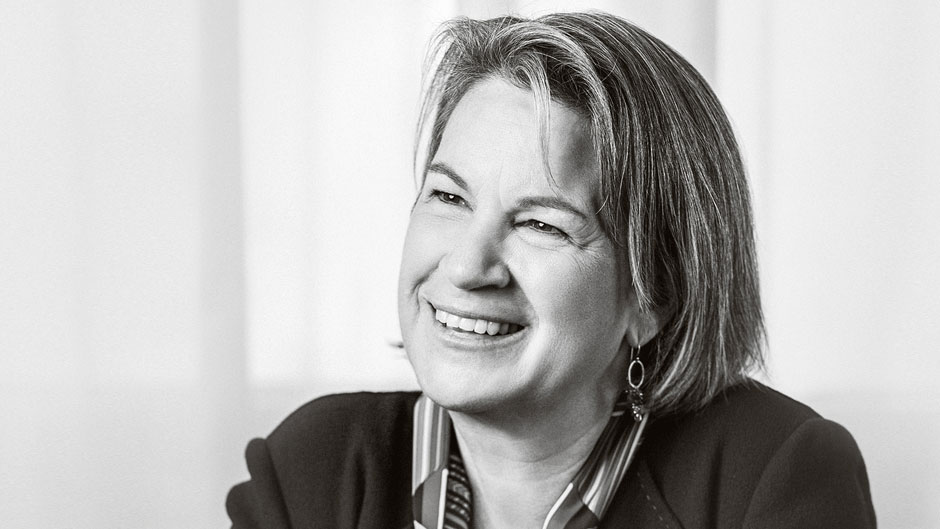Just days before the United Nations Climate Change Conference (COP26) opens, UBS president Suni Harford shared ideas and insights on how to best advance environmental, social, and governance (ESG) factors as part of the global environmental imperative.
“2020 marked a huge pivot point for ESG as an industry, business, and strategic imperative for the world,” Harford noted during a webinar on Wednesday hosted by the University of Miami Patti and Allan Herbert Business School. The shift involved greater shareholder focus on employee health and well-being as critical to a company’s mission and a more positive perception of activism.
“What has transformed the industry is that shareholders and regulators want to see a more holistic approach and doing good overall,” added Harford, whose firm manages more than $1 trillion in assets in 23 countries around the world. “It’s important that people believe in your brand—and that is now much more part of the shareholder story. We’ve changed a lot; now we have to see if it sticks.”
Ioannis Ioannou, a visiting associate professor of management, and David Kelly, economics professor and academic director of the school’s M.S. in Sustainable Business program, moderated the lecture, the first of three as part of the “Beyond COP26: What Businesses Must Do” series.
The field of asset management, like seemingly every facet of society, has become increasingly politically polarized, Harford pointed out. Yet to encourage businesses to promote sustainability as part of their investment goals, asset management firms like UBS must continue to educate and engage—not exclude—clients.
“I still have clients who don’t believe that polar bears are in trouble,” Harford said. “Part of our job is to make sure they understand these complex issues and what’s at stake, so there’s a lot we can do in terms of education.”
In the United States, she noted the impact of policy and laws that preclude management firms from more energetically promoting ESG. Prior to the current Biden administration, it was illegal for U.S. pension firms to consider sustainability issues as part of their investment strategy.
And politics continue to plant a stake in the heart of advancing some of the 17 U.N. Sustainable Business goals, which offer a blueprint for a more sustainable future.
“There’s deep division among investors along political lines: if you’re ‘green,’ you’re ‘left’ and you’re ‘Biden,’ and depending on where you are in the country these are bad for America,” Harford said. She pointed to laws, such as one in Texas, which bars people who refuse to work with a fossil fuel company anywhere in the world from doing business in the state.
The financial expert said that firms such as UBS can mobilize trillions of dollars globally to find opportunities, support new product development, and foster a new approach to investment that promotes ESG criteria, yet that alone is not enough.
“Financial services and asset management can play key roles, but we cannot do it alone,” she said. “No single industry, no single group can carry the heavy lift. Whole industry business models must change, new businesses have to be founded and old ones shut down.”
Harford cited the pharmaceutical industry as an example of the need for all industries to collaborate to support sustainable goals.
“Big pharma spends a lot of money on R&D. If you stop incentivizing them to do that, we’re going to have a big shortfall. We need every piece of the economy to help move this to net zero environment and that includes R&D,” Harford said.
She suggested that the fossil fuel companies may know the energy market best and that it’s critical to educate and help convince them to shift their business models—because that will benefit the planet and ultimately benefit them.
“That’s the point and value of engagement. We need to bring them along and we need them at the table,” Harford said.
She noted that in 2020 alone, there were 550 new regulations that impact business and the environmental standards and practices. To address that complexity, Harford called for more consistent data to assess how firms are complying.
She referenced the importance of the Task Force Alliance on Climate-Related Financial Disclosures (TCFD), an initiative that would help eliminate variances in current assessment capabilities.
“We need consistent data so that we can compare companies and we can all be level set on what it means to be ‘green’ or doesn’t. With that, there’s still plenty of room for us to have our own proprietary approach and to deviate from those ratings,” Harford said.
“We hope that COP26 starting soon in Glasgow will come out in full support of TCFD—and maybe they’ll surprise us and do that. We’ll take whatever we can get to keep things moving along,” Harford said. “It’s great that so many world leaders are getting together and bringing awareness to these critical issues.”

